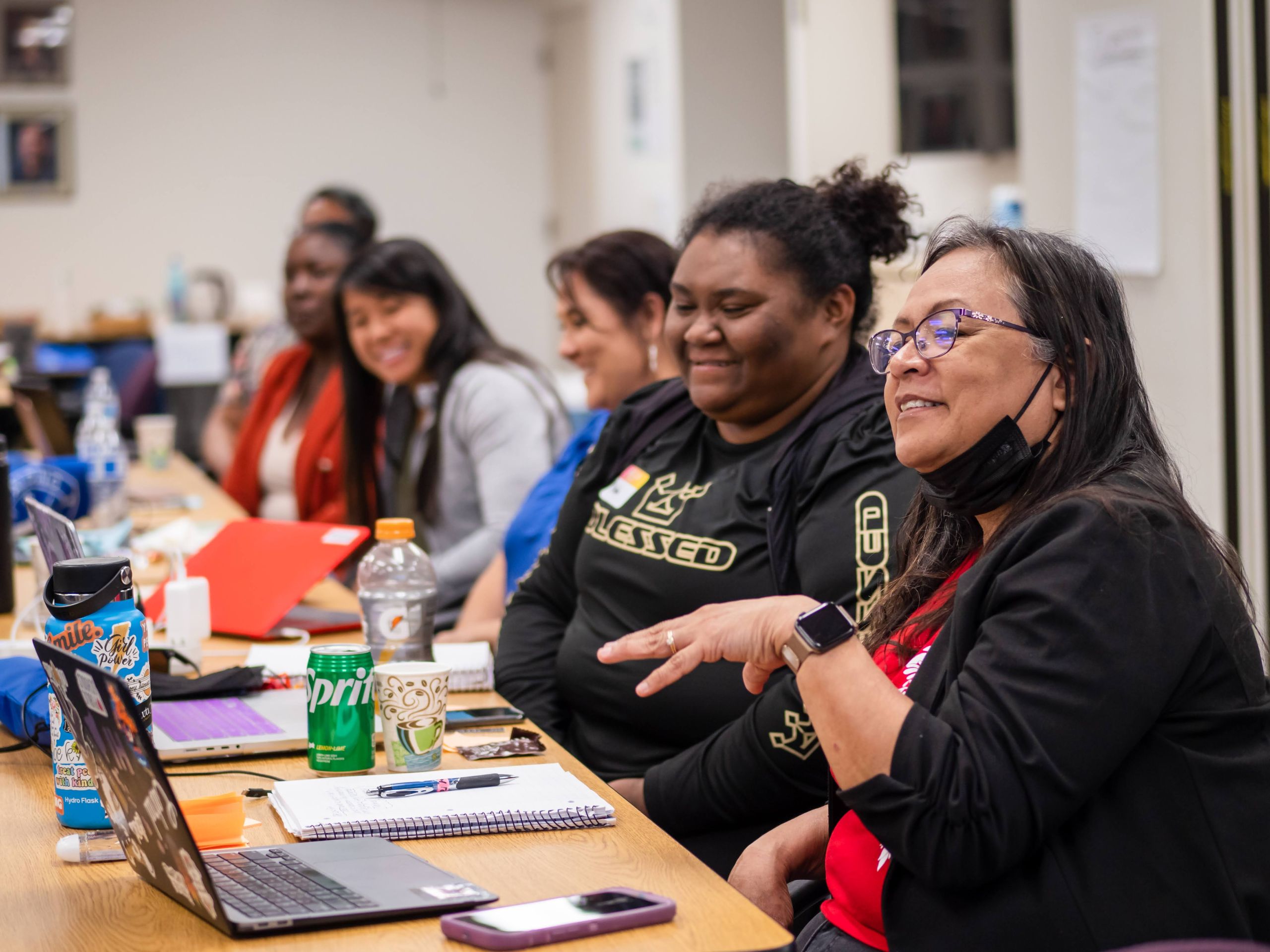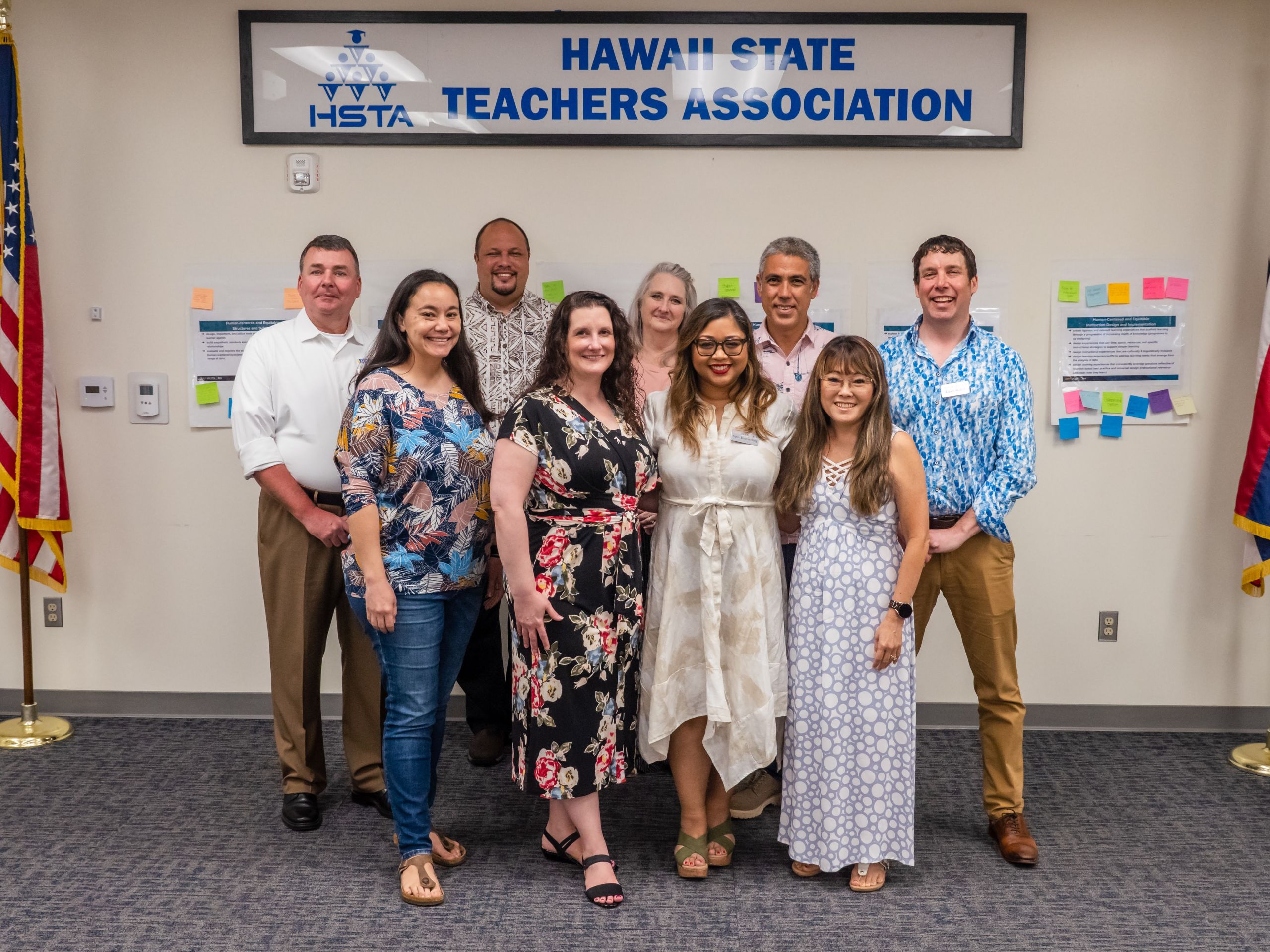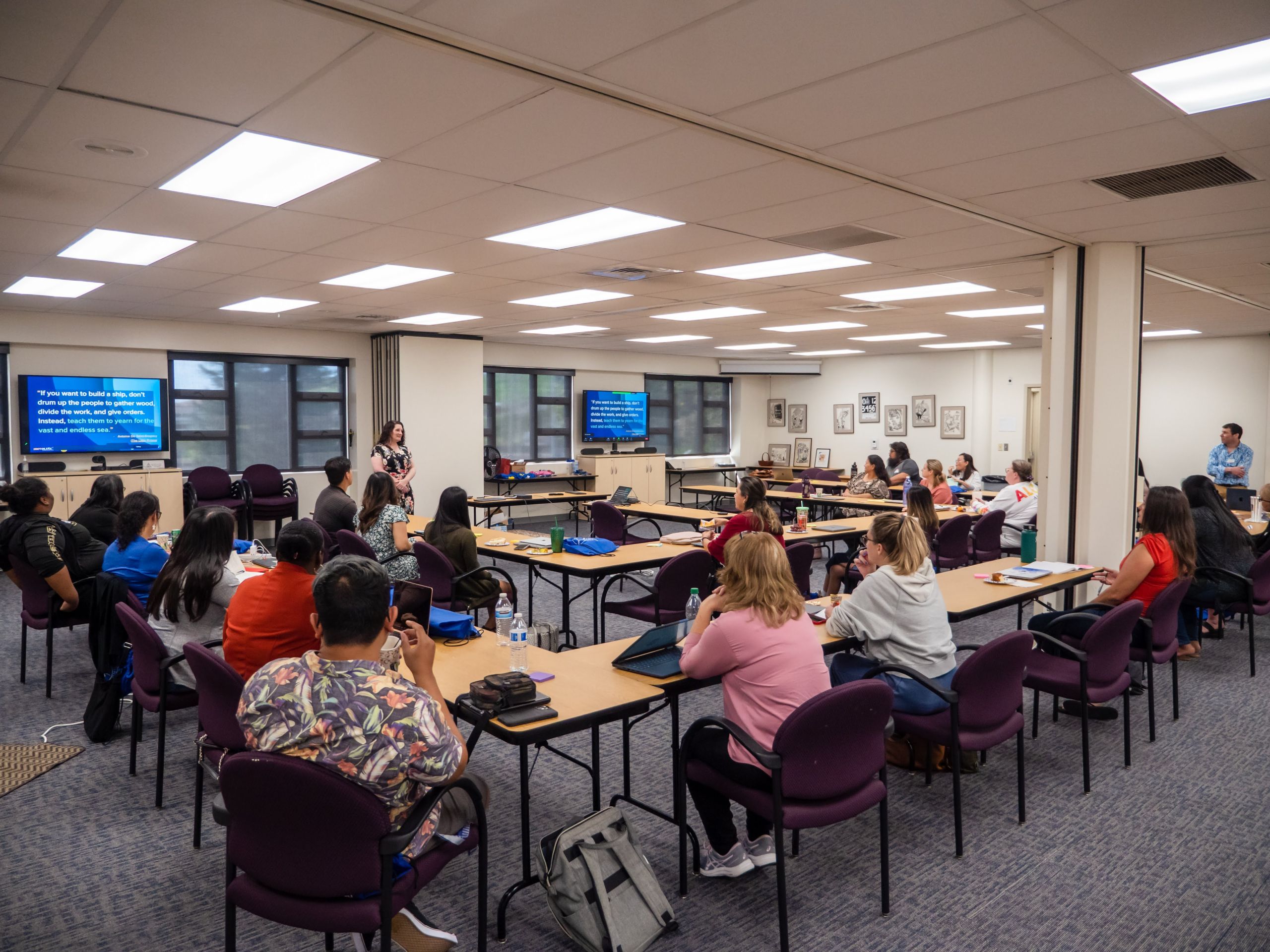HSTA members will earn degree with tuition discount, local support
Posted: March 29, 2023
A total of 25 Hawaiʻi State Teachers Association members gathered in person Saturday at HSTA headquarters with neighbor island members joining online for the first meeting of the Master’s of Education degree cohort in a joint effort with HSTA, Spalding University, the nonprofit What School Could Be and the national education design lab called 2Revolutions.
HSTA members who joined the first cohort of the program, which normally costs $11,500, received an exclusive discounted tuition of $9,900 thanks to a generous grant from What School Could Be founder Ted Dintersmith, who received the NEA’s Friend of Education Award in 2018.
Kapono Ciotti, executive director of What School Could Be, said, “We’ve been working really hard to bring a Master’s in Education program that we feel is the cutting edge, a learner-centered, education-forward program specifically to Hawaiʻi. This program is open to everybody across the world. But being from Hawaiʻi, and having so much of our programming based here, it’s really neat that we can offer it here in Hawaiʻi.”
Ciotti maintains that teachers “want to see more options for their kids. They want to see more pathways and more pathways to success, and success defined more broadly. And that’s what this program is about.”
The program’s learning will occur through a combination of asynchronous online (80%) and synchronous virtual and in-person learning experiences (20%). While the program is national, the live virtual components for the Hawaiʻi cohort will be held at convenient times for Hawaiʻi educators and led by a local facilitator.
Teachers receiving discounted tuition through program
Many teachers seek to improve their practice by earning advanced degrees. The national average for a Master’s of Education program ranges anywhere from $30,000 to $55,000. However, HSTA members are working toward their Master’s of Education online through HSTA’s exclusive partnership program for just $9,900.
J.R. Quilos, a 5th-grade English and Social Studies teacher at August Ahrens Elementary School, has been teaching for five years and wanted to earn his master’s degree. When he heard about the discounted tuition through HSTA, he was eager to apply.
“I was just like, wow, why isn’t the room filled with everybody, because that’s such a deal. Tuition is already such a big thing to think about whenever you’re going back to school. And so when I saw that total, I thought, ‘I can never get a deal like that.’”
Ciotti, one of the program partners, feels educational equity is important.
“Master’s degrees…shouldn’t be only accessible to those people who have cash in the bank. And educators, almost as a rule, don’t have tons of cash in the bank that they can do these things. So we believe if we’re going to support kids, we need to support educators in having access to these degrees at a more reasonable price and be able to increase their salaries through getting these types of degrees so that they can support their own families,” Ciotti said.
Local support, improving practice a draw for teachers
Tammy Cabral, an 8th-grade special education teacher at Waiʻanae Intermediate School, was drawn to the program, in part, due to the local support she’ll be receiving.
“I’m actually in the class with one of my own peers from our school, and then a couple from the high school, and just meeting all these people with the same purpose is super cool, with a cohort from Hawaiʻi,” she said.
Cabral felt supported during registration, saying HSTA and its partners helped her ready her transcript and application for the program.
“I’m super excited because the support system is strong, so I’m excited to work with everybody.”
First-year teacher Ebonie Sanchez teaches kindergarten at Solomon Elementary School and looks forward to how earning her master’s degree will improve her students’ learning.
“I think going through this program will allow me to dig deep into finding some different tools to be able to access student learning and engagement. I’m really excited about the opportunity to be able to think outside of the box, and they have the tools to help students think outside the box,” Sanchez said.




